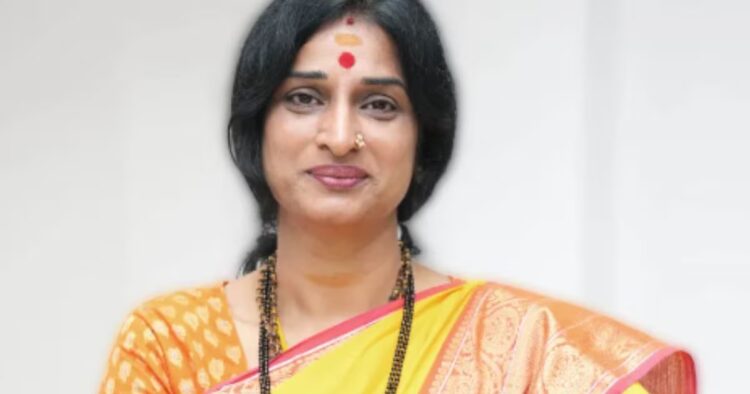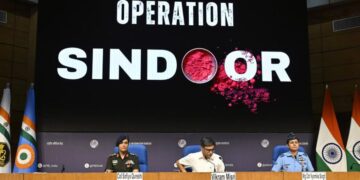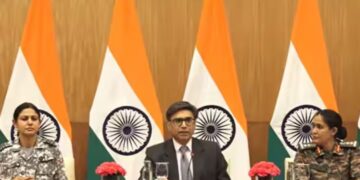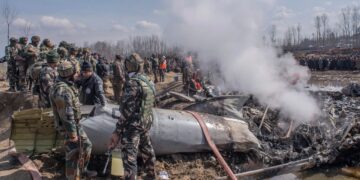In a startling revelation, BJP’s Madhavi Latha has exposed the insidious influence of religious rhetoric in swaying voters across Telangana. Amidst the upcoming electoral showdown, allegations of religious manipulation have cast a shadow over the democratic process in the state as exposed by Latha.
She expressed “As per section 5 of religious institutions which comes under prevention of Misuse at 1988, it is very clearly has been explained that no religipus institutions either in the form of funds or any other property, you are not supposed to influence a voter.”
Furthermore, Latha’s accusations of neglect and stagnation under Owaisi’s leadership strike a chord with disillusioned constituents. Allegations of rampant corruption, illegal occupation of Hindu properties, and lack of development paint a grim picture of Hyderabad’s political landscape under Owaisi’s watch. Latha’s assertion that Hyderabad is akin to “Kashmir” in terms of political manipulation and religious polarization underscores the urgency of change in the city’s governance.
''हैदराबाद कौनसा कम है कश्मीर से..?'' BJP's Madhavi Latha alleges Voters being influenced on the name of religion in Telangana#MadhaviLatha #Hyderabad #Owaisi #Voting
Watch Full Episode Here: https://t.co/eBhRkKKUvG pic.twitter.com/DORtVP74ag
— ANI (@ANI) March 26, 2024
Latha’s candid disclosure sheds light on the pervasive practice of leveraging religious sentiments to garner political support. By appealing to the devout followers of various faiths, certain political entities have sought to monopolize the electoral landscape, exploiting the sacred bond between religion and community for their own gain.
In a bold move, Latha exposes the alleged malpractices within the electoral system, citing instances of bogus voting and voter intimidation. Her claims of children in Madrasas being deprived of basic necessities and forced into labor send shockwaves through the electorate, casting doubt on Owaisi’s purported commitment to social welfare and inclusivity.
Latha’s expose of the dire conditions faced by children in Madrasas exposes the hypocrisy of those who claim to champion the cause of minority rights. The plight of these vulnerable youths, deprived of basic necessities and forced into labor, serves as a damning indictment of the failures of successive regimes to uphold the principles of social justice and equality.
Furthermore, Latha’s impassioned plea for electoral integrity strikes at the heart of democratic governance, challenging the pervasive culture of corruption and malpractice that threatens to undermine the sanctity of the electoral process. Allegations of bogus voting and voter intimidation highlight the urgent need for systemic reforms to safeguard the integrity of elections and preserve the voice of the electorate.
As Telangana braces itself for a pivotal electoral contest, the choice between succumbing to divisive rhetoric or embracing the promise of genuine change rests squarely in the hands of the voters. Latha’s courageous stand against religious exploitation and political malfeasance offers a beacon of hope for those who yearn for a more equitable and inclusive society.
In the face of concerted efforts to sway public opinion through religious appeals and communal polarization, Latha’s unwavering commitment to secular values and democratic principles serves as a testament to the enduring spirit of resistance against oppression and injustice. As the battle for the soul of Telangana unfolds, the true test of democracy lies not in the manipulation of faith but in the empowerment of the people to chart their own destiny.

















Comments